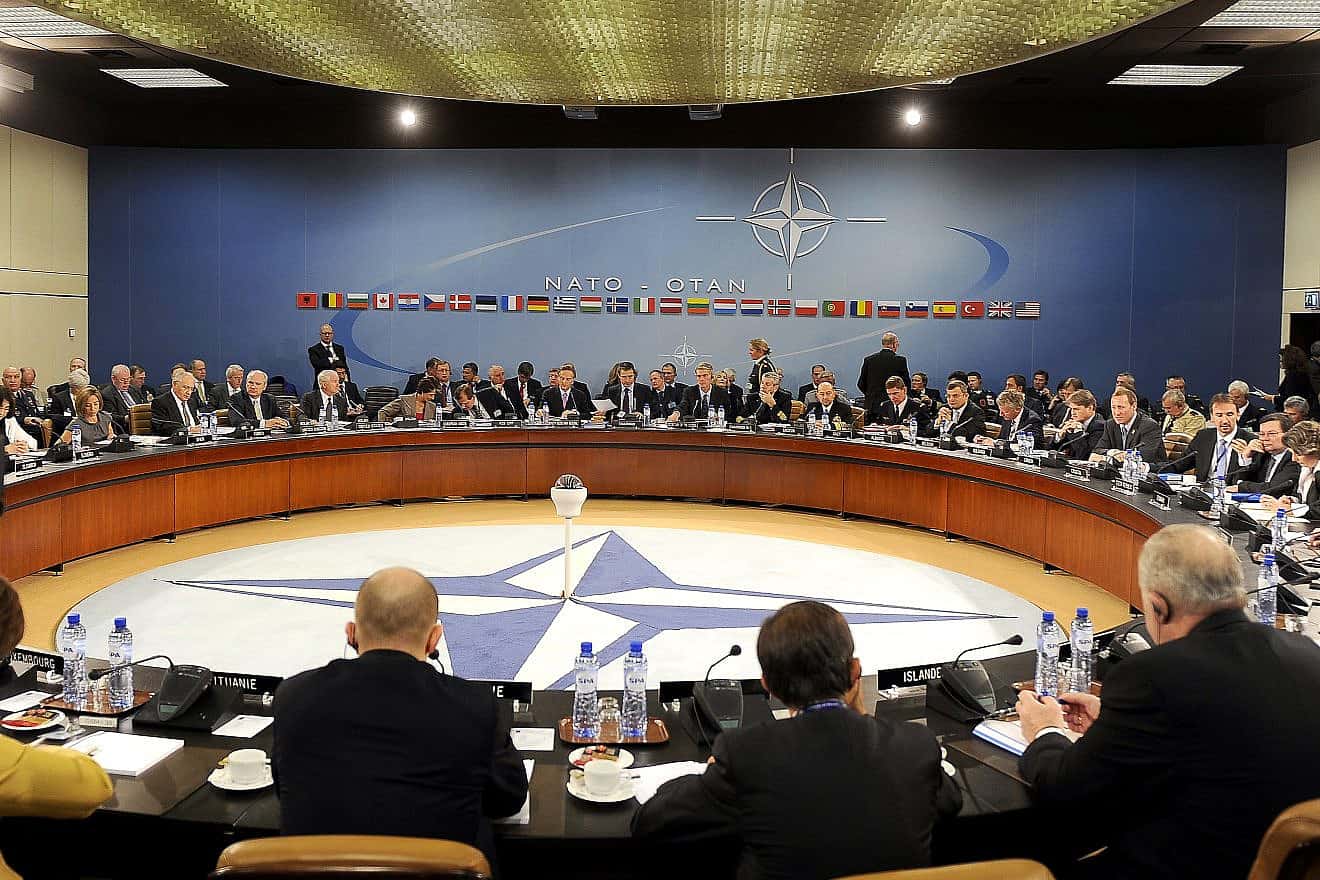When former President Donald Trump speaks, exploding heads tend to follow, often for good reason. His recent comments about NATO, saying he would not protect European countries that do not pay their dues to the alliance, set off alarm bells at home and across the Atlantic. In the case of Trump, however, one can despise the messenger and recognize that his message has some merit.
At a recent rally in South Carolina, Trump caused chaos by speaking of a conversation he had with a foreign leader when he was president. Trump claimed he told the leader that not only would he “not protect” NATO members that are delinquent in their payments or fail to meet their defense spending requirements, but he would also encourage Russia “to do whatever the hell they want” with them.
European Council President Charles Michel responded by saying that Trump’s statements “serve only Putin’s interest.” Secretary-General of NATO Jens Stoltenberg said, “Any suggestion that allies will not defend each other undermines all of our security, including that of the U.S.”
These are valid concerns and point to real consequences that could result if Trump’s words become U.S. policy.
At the same time, however, Michel himself acknowledged that Trump’s statements underscore the importance of European investment in the continent’s “nascent efforts” to strengthen its “strategic autonomy” and defense capabilities. European nations have already started that process and well they should.
According to a 2023 NATO report, Russian and Chinese defense spending has increased 277% and 566% respectively since 2000, while European investment remained flat. Despite signing the 2014 Defense Investment Pledge following Russia’s annexation of Crimea, only two of the top five European NATO allies—Poland and the United Kingdom—kept their promise to spend at least 2% of their GDP on defense. According to 2023 estimates, they spent 3.9% and 2.07% respectively. Only 11 of the 31 NATO countries are expected to meet their defense obligations in 2024.
However, there has been some movement on this issue. Germany will reach its goal of spending 2% of its GDP on defense in 2024 and the E.U. has pledged $54 billion to Ukraine, relieving the United States of some of the aid burden.
The existing NATO-based global security apparatus can be understood as a triangle with the U.S. at the peak and NATO allies together with Israel forming a narrow foundation. Such a triangle is highly unstable. Russia’s war in Ukraine, China’s ongoing power plays and Iran’s malign behavior are proof of this.
The United States, Europe, Israel and all Western-aligned countries are better off with a militarily strong Europe. After decades of neglect, European nations must refortify their military capabilities and reassess their strategic partnerships in key areas such as defense, energy, security, supply chains of essential goods and technology.
European nations that understand this have been forging a deeper and broader relationship with Israel. Germany is now Israel’s largest defense trading partner and has acquired the Arrow missile-defense system.
Led by Poland, Central and Eastern European nations that fear Russian aggression are aligning with Israel due to shared strategic interests. European nations are looking to friendshore essential goods to Israel and the other Abraham Accords countries. There’s hope that Saudi Arabia won’t be too far behind.
What does all this mean for the Western alliance and the United States?
Assuming America maintains its status as the top military power in the world, it will remain at the peak of the global security triangle. However, if Europe and Israel align their strategic interests and invest commensurately in their respective defense and security capabilities, the base of the triangle widens, creating a more stable triad that can better withstand and confront global instability.
Moreover, strengthening Europe and Israel strategically and militarily reduces the burden on the United States.
Trump is often his own worst enemy, relying on over-the-top and insolent rhetoric as his preferred means of persuasion. In this case, however, his language, as outlandish as many consider it to be, contained an important warning.
That is, there may come a day when Europe can no longer depend on the United States to protect it. As a result, European leaders need to look after their own countries’ national interests.


























